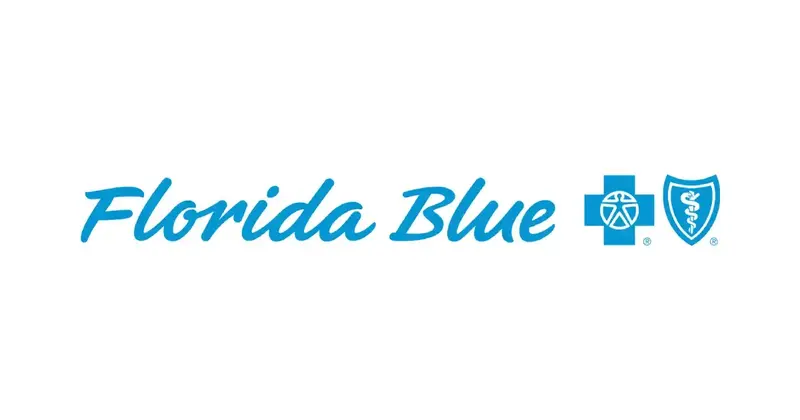“What does BCBS cover for bipolar disorder?” We address that inquiry and more on this page, clarifying the range of therapy, treatment options, resources, and insurance coverage details for bipolar disorder. Discover how the customized mental health support from Florida Blue Cross Blue Shield (BCBS) and The Sylvia Brafman Mental Health Center can assist in your journey to recovery.

Florida Blue (BCBS of Florida) Bipolar Disorder Therapy and Treatment
What are Some Signs of Bipolar Disorder?
Bipolar disorder is a multifaceted mental health condition characterized by pronounced mood swings encompassing episodes of mania and depression. During manic phases, individuals may exhibit excessive energy, impulsivity, and reduced need for sleep. Conversely, depressive episodes entail persistent feelings of sadness, hopelessness, and diminished interest in previously enjoyable activities.
Early recognition of signs and symptoms is paramount for timely diagnosis and effective management. Recognizable indicators of bipolar disorder include fluctuations in energy levels, erratic sleep patterns, impaired concentration, and impulsive behavior. Other potential signs encompass appetite changes, self-esteem shifts, and strained interpersonal relationships. Identifying these patterns is crucial for seeking professional help.1 Below is a list of symptoms associated with this disorder that impacts around 2.6% of individuals aged 18 and older in a given year in the United States:2
- Elevated mood and increased energy during manic episodes
- Depressed mood, fatigue, and loss of interest during depressive episodes
- Irregular sleep patterns, ranging from insomnia to hypersomnia
- Impaired concentration and difficulty making decisions
- Impulsivity and engaging in high-risk behaviors
- Changes in appetite and weight
- Altered self-esteem, ranging from grandiosity to low self-worth
- Challenges in maintaining stable interpersonal relationships

Who is Florida Blue?
The Blue Cross Blue Shield Association (BCBSA) is a group of independent health insurance companies that aim to assist people across the United States. One of these companies is Florida Blue, which was established in 1945 and has become a notable health insurance provider under the Blue Cross Blue Shield (BCBS) umbrella. They offer comprehensive coverage to residents of Florida.
Florida Blue is unique in its dedication to promoting community health and well-being. It plays a crucial role in shaping the healthcare landscape of The Sunshine State. As the largest provider of individual marketplace plans in the country, they emphasize their commitment to advancing accessible and comprehensive healthcare solutions.3

At The Sylvia Brafman Mental Health Treatment Center in Fort Lauderdale, Florida, our team of dedicated professionals is ready to guide you. We offer IOP and a variety of treatments programs, each uniquely designed to meet your needs. So don’t wait, reach out to us today! Either give us a call or fill up the form below to request a callback.
"*" indicates required fields

What is Florida Blue Mental Health Rehab Insurance?
Florida Blue is dedicated to the overall well-being of its members and provides comprehensive health coverage options for mental health rehabilitation. This coverage includes a variety of services, such as supportive counseling and therapy sessions, designed to address conditions like bipolar disorder, supporting the journey toward recovery and emotional well-being.
Those benefitting from Florida Blue’s mental health insurance coverage can access a healthcare network with qualified mental health professionals and rehabs in Florida that accept Blue Cross Blue Shield. This guarantees access to vital care specifically designed to help you or your loved one navigate and overcome mental health challenges in a supportive environment conducive to recovery.7
Does Blue Cross Blue Shield Cover Bipolar Disorder Treatment in Florida?
Yes, Florida Blue Cross Blue Shield (BCBS) provides coverage for bipolar disorder treatment in Florida. Their comprehensive health insurance plans may include various treatment options, ensuring individuals with bipolar disorder can access necessary care. Whether it involves therapy, medication, or other therapeutic interventions, BCBS aims to support individuals in their journey to manage and address bipolar disorder effectively.
As the details of coverage can vary significantly from one plan to another, reviewing the specific details, contacting Florida Blue member services, or calling 877-958-9212 is vital for accurate information on coverage and costs related to bipolar disorder treatment.
Does Blue Cross Blue Shield Cover Therapy and Counseling for Bipolar Disorder in Florida?
If you’re in Florida and seeking coverage for bipolar disorder, Florida BCBS does cover therapy and counseling. They’ve got you covered with comprehensive health plans that include therapeutic services. Choose from a list of in-network providers to optimize your mental health treatment benefits, and rest assured that BCBS is committed to supporting you in receiving the necessary care.
For accurate, up-to-date information regarding your coverage for bipolar disorder therapy and counseling, check your plan details or call 877-958-9212. We can provide details on what’s covered and any potential costs associated with these services, such as copayments and deductibles.
Does Florida Blue Cover Psychiatrist Visits for Bipolar Disorder?
Yes. As part of its comprehensive health coverage, Florida Blue Cross Blue Shield includes provisions for psychiatric services, ensuring individuals with bipolar disorder can access essential care. For an accurate representation of this type of coverage, contact one of our helpful patient advocates at 877-958-9212. We can offer the most precise information customized to your specific circumstances.

Does BCBS of Florida Cover Bipolar Disorder Medications?
If you’re covered by Blue Cross Blue Shield (BCBS) in Florida, it usually includes coverage for bipolar disorder medications. Florida Blue, as part of the BCBS healthcare network, typically covers various prescription medications, and this often extends to those prescribed for bipolar disorder.
It’s important to keep in mind that there might be restrictions or exclusions concerning generic versus brand-name medications. For information specific to your plan, it’s recommended to review your plan details or call 877-958-9212. We can offer accurate details regarding the coverage of bipolar disorder medications and any out-of-pocket costs.

Bipolar Disorder Programs Covered by Blue Cross Blue Shield Insurance
Blue Cross Blue Shield (BCBS) insurance covers diverse programs catering to individuals with bipolar disorder, offering comprehensive support for effective management and recovery. Whether it’s therapy, counseling, medication, or other interventions, these programs aim to ensure accessible resources for mental health.
Below, we’ll explore specific program types, delving into the details of coverage for therapy, counseling, medication, and more within BCBS’ comprehensive plans for bipolar disorder. These insights empower you and your family to make informed decisions on your mental health journey with the support of your health insurance provider.

Bipolar Disorder Treatment Center in Florida That Takes Blue Cross Blue Shield Insurance
The Sylvia Brafman Mental Health Center specializes in mental health treatment, including bipolar disorder treatment. We bring decades of expertise to address the distinctive challenges associated with this mood disorder. Our comprehensive evaluations and ongoing assessments result in accurate diagnoses, allowing our expert team to provide tailored, evidence-based treatments to meet the unique needs of you or your loved one.
Furthermore, we may accept your Florida Blue Insurance plan, making it easier for you to access the necessary services when seeking help with managing and recovering from bipolar disorder. To learn more about our specialized bipolar disorder treatment programs and available options, please call 877-958-9212 or visit our South Florida location at the address below:
- The Sylvia Brafman Mental Health Center: 7710 NW 71ST CT, Tamarac, Florida, 33321

Types of Bipolar Disorders Covered by Florida Blue Insurance
Florida Blue provides coverage for various types of bipolar disorders, recognizing the diverse presentations within this mental health condition. Bipolar disorders, characterized by fluctuations in mood, involve distinct patterns of manic and depressive episodes, requiring tailored approaches to diagnosis and treatment.
In the upcoming sections, we’ll explore examples of bipolar disorder subtypes typically covered by Florida Blue Insurance. The following sub-headings are illustrative examples and not an exhaustive list, as bipolar disorders manifest in nuanced ways. This exploration aims to provide insights into the diverse coverage options and support available.

How Much Does Bipolar Disorder Treatment Cost Without BCBS Insurance?
For individuals without insurance, the cost of basic bipolar disorder treatment can amount to at least $500 per month. This covers expenses for two bipolar disorder medications and one psychiatric medication management appointment.10 However, most patients need more than the minimum. Costs vary significantly, but don’t allow the price tag to deter you from the necessary treatment.
It’s crucial to keep in mind that these numbers are estimates only. Find in-network providers and understand your policy details to make the most of your Florida Blue Cross Blue Shield plan. We’re here to help – for an accurate assessment of bipolar disorder treatment expenses tailored to your or your loved one’s specific needs and to address the question, “How much does BCBS cover for therapy?” call 877-958-9212.
How To Check My Florida Blue Health Insurance Coverage Levels
Contact us at 877-958-9212 for a comprehensive and complimentary evaluation of your Florida Blue health insurance coverage. At The Sylvia Brafman Mental Health Center, our dedicated team is ready to engage with your health insurance provider to ensure clarity on the specifics of your coverage.
Following this, we will guide you through your policy details, providing comprehensive insights into treatment options, program choices, and any associated out-of-pocket expenses. We aim to empower you with the knowledge to make informed decisions regarding your mental health treatment, ensuring a tailored, practical approach to your overall mental and emotional well-being.



